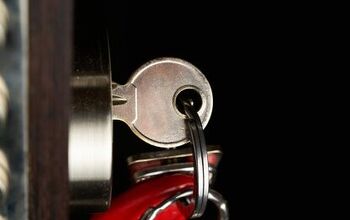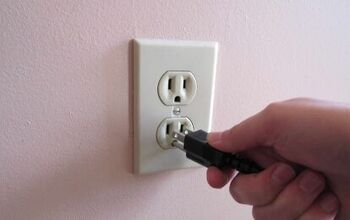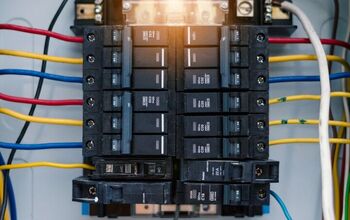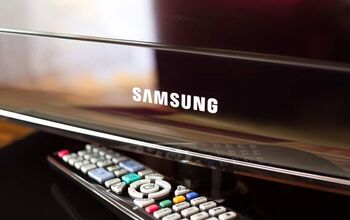Why Does My Pool Keep Losing Water?

Owning a home with a swimming pool comes with lots of variables and maintenance. Pools are fun and add value to homes, but even the smallest problems can be puzzling and expensive. So, why does my pool keep losing water?
Evaporation is the main reason why pools consistently lose water, and that’s common during hot summer days. Pools can also lose water when the liner, tiles, or pumps are leaking, and that can cost $500-$3,500 to fix. Place a cover on your pool overnight or when it’s not in use to help prevent evaporation.
Pools can also lose water when people jump into them and splash each other. Luckily, evaporation is the biggest culprit in most cases, so you may not need to worry about expensive repairs. Follow along as we explore why your pool keeps losing water and highlight repair costs.
Why Is The Water In My Pool Going Down?
1. Evaporation
Evaporation is the most common reason why your pool keeps losing water. This is most common during the summer, but evaporation can also happen throughout the winter when the pool is closed. Swimming pools typically lose ¼” to ½” of water each day during the peak of summer.
That quickly adds up, and more water can evaporate on particularly hot days. Conversely, the typically low humidity throughout winter also causes evaporation despite the low temperatures. Your pool won’t lose water as quickly during the winter as it would in the summer, but it’s still common.
Pools can lose 2” to 4” of water per week through evaporation during the summer, so you must refill it. Simply top off your pool once or twice a week to keep it full when the weather is hot.
2. You Have A Leak
If your pool keeps quickly losing water, it may simply be leaking. You can tell this is the case if the water level consistently drops throughout the day. Other signs, such as wet spots in your yard, can indicate a pool leak.
Not only does this raise your water bill, as you’ll have to refill the pool often, but it can also damage your yard. Water can make its way into your yard and damage the landscape depending on where the leak is. Thoroughly inspect your pool’s liner and tiles for cracks if you suspect a leak.
Leaks can even occur around the lights in your pool, so it can be hard to find the source. You can expect to spend anywhere from $500 to $3,500 to fix a leak in your pool. The cost depends on how severe it is, how many cracks there are, and labor fees.
3. No Pool Cover
Many people only cover their pools when they close them for the fall and winter. However, your pool is bound to lose water if you don’t cover it during the summer. Solar pool covers are especially helpful in stopping water loss overnight.
That’s because they keep the pool slightly warm without becoming hot, to prevent evaporation. Even standard pool covers are useful, and they’re easy to remove when you’re ready to swim. Otherwise, you can find plenty of automatic pool covers that you can operate with a remote or button.
Granted, automatic pool covers typically start at $1,500, so it can be a big investment. Simple, manual pool covers often cost under $100, and they help pools retain water.
4. Frequent Splashing
Losing some pool water from swimming and splashing is unavoidable. Water inevitably splashes onto the ground around the pool nearly every time someone jumps in. This is especially common for pool parties where many people jump in the pool and swim.
Luckily, that isn’t a major problem, and you can easily fix it when you add more water to the pool. The only time this could be a problem is if you have nearby plants in your surrounding yard that you don’t want to get soaked.
Pool water that contains chlorine can harm plants and cause major root damage. Keep that in mind next time you do a cannonball jump into your pool, or simply move potted plants away from the water.
5. Faulty Pump
Pool pumps are necessary to keep the water safe, but they don’t always work as intended. Pressure side leaks are common with pool pumps, and they’re easy to identify. For example, you may notice water pooling beneath the pump if there is a pressure side leak.
You will also likely see water dripping from the pump itself. Other parts of the pump, such as the strainer lid and shaft seal can also leak. In that case, you may hear the motor make strange sounds as it struggles to do its job.
On the low end, it costs $500-$700 to repair a pool pump, but it can cost $1,500 or more in extreme cases. Pool pumps last up to 15 years, but they can fail in as little as 8-10 years. In that case, you can expect to spend $700 to $4,000 to replace a pool pump, depending on the type of system.
Can You Ask A Seller To Fix The Pool Before Closing?
You can ask a seller to fix the pool before closing, but they don’t have to. This is a somewhat common request when inspections reveal leaks and pool pump problems. It’s worth it to at least ask the seller to cover the cost of repairs, as it can be a big undertaking.
Otherwise, you may simply want to negotiate to knock the cost of repairs off the selling price. That said, it may not be worth it if it’s your dream home and the request would upset the seller.
Summing It Up
Check your pool if it continually leaks water without explanation. The liner, tiles, pump, and even lights are common sources of pool leaks. Otherwise, water loss in your pool is common throughout the summer due to evaporation from excessive heat and splashing when people swim and jump in the water.
Related Guides:

Nick Durante is a professional writer with a primary focus on home improvement. When he is not writing about home improvement or taking on projects around the house, he likes to read and create art. He is always looking towards the newest trends in home improvement.
More by Nick Durante



























